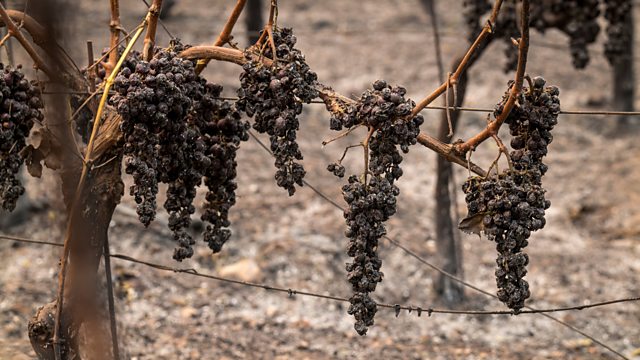Climate change: A risk to food security?
What can be done to protect our food supply from extreme weather events?
While agriculture remains one of the biggest contributors to climate change, it is also most exposed to its adverse effects. Scientists say that extreme weather events will become more frequent and more intense as global temperatures continue to rise. In 2021, harsh winters, unseasonably warm summers, and sudden changes in rainfall affected food production around the globe - from the farmlands of Europe to the grasslands of Africa. There has been a jump in the prices of essential commodities like wheat and maize and traders are braced for more fluctuations. Climate risk is not only affecting farmers and their livelihoods, it is also exposing more people to food shortages. So what are the most pressing dangers and how can we protect our food supply from extreme weather events?
Paul Henley is joined by a panel of experts.
Producers: Junaid Ahmed and Ellen Otzen
Last on
More episodes
Contributors
Featuring,
Maureen Wanzala - Meteorologist and climate scientist, KenyaShaun Dyrland - Pulse farmer, Saskatchewan, CanadaAndrea Passanisi - Avocado farmer, Sicily, ItalyDale Stevermer - Pigs and crops farmer, Minnesota, United States
Picture
Broadcasts
- Fri 14 Jan 2022 10:06GMTΒι¶ΉΤΌΕΔ World Service
- Sat 15 Jan 2022 00:06GMTΒι¶ΉΤΌΕΔ World Service
- Sat 15 Jan 2022 04:06GMTΒι¶ΉΤΌΕΔ World Service
The Real Story Podcast
Subscribe via your favourite podcast app...
Podcast
-
![]()
The Real Story
Global experts and decision makers discuss, debate and analyse a key news story.


